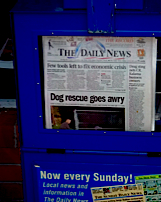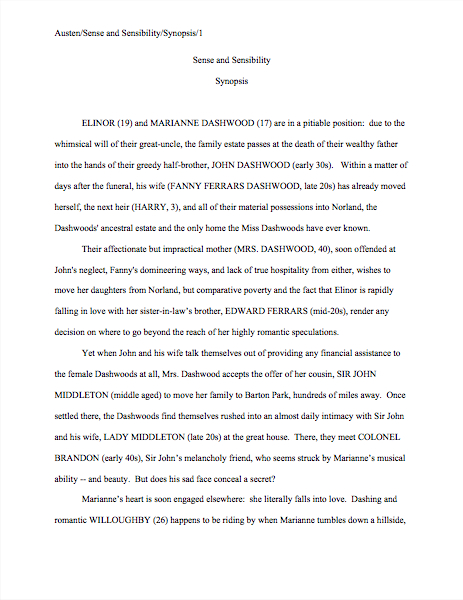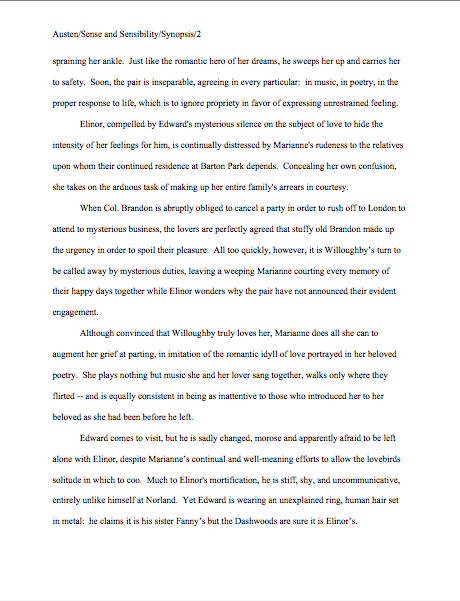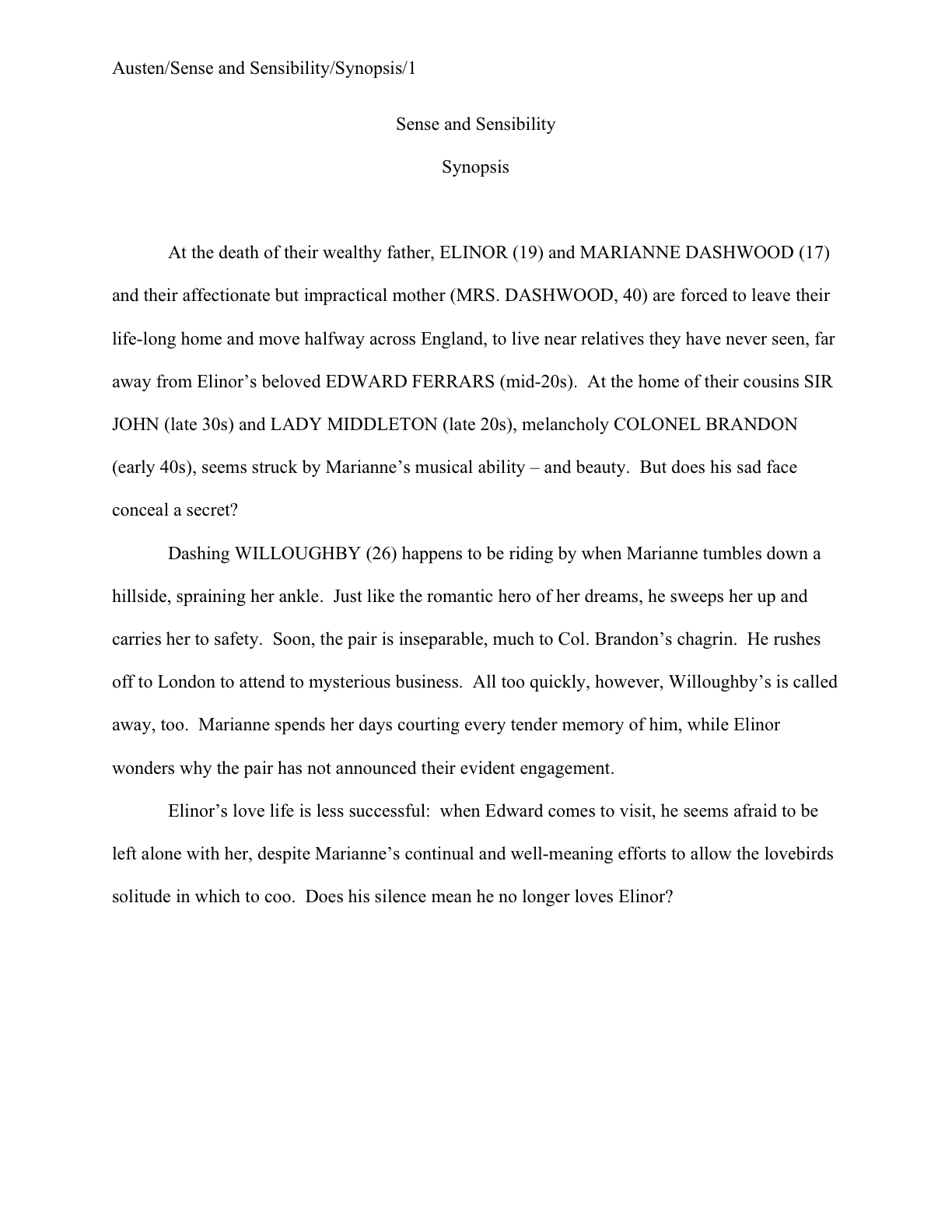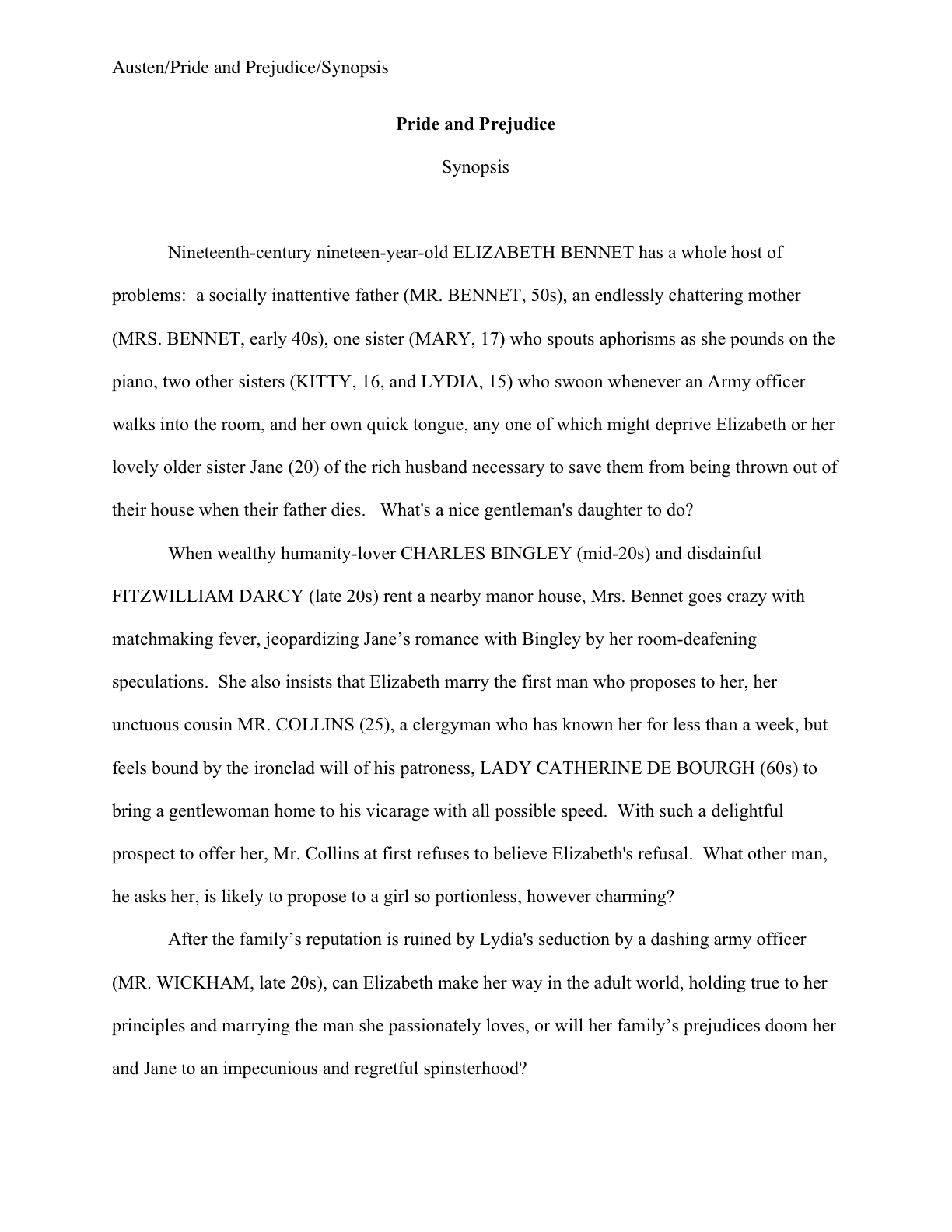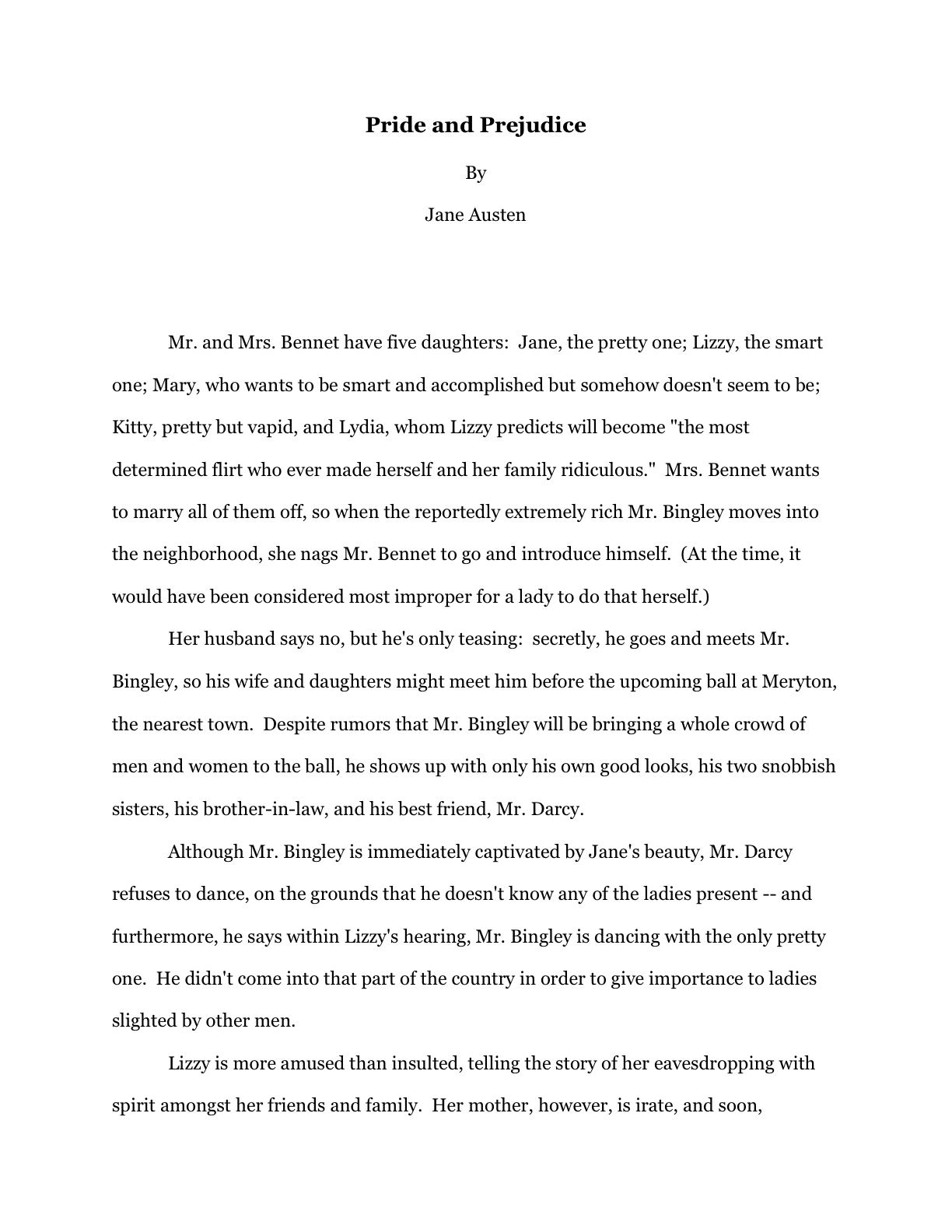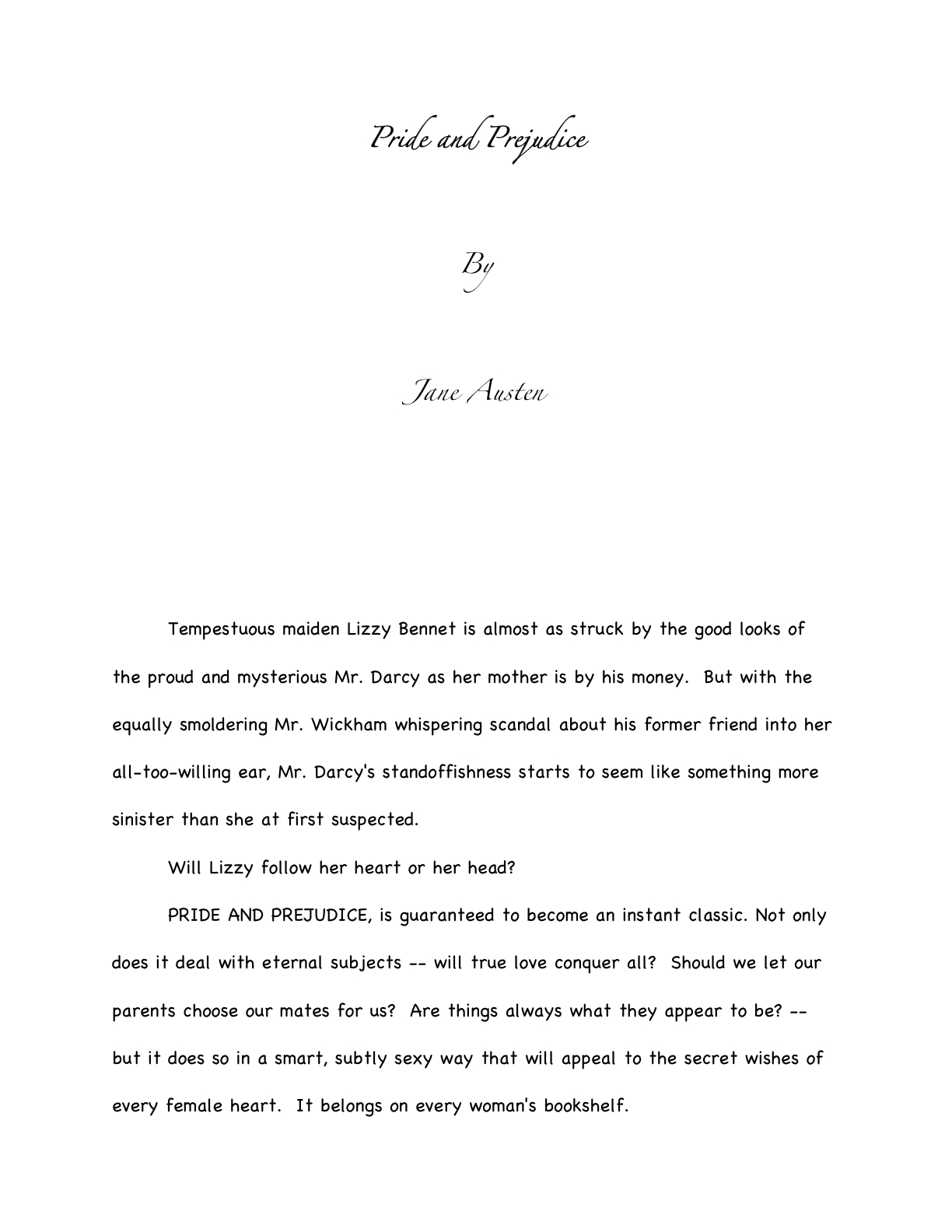
Throughout my recent series on all of the many, many reasons that agents and their screeners reject submissions based upon the first page alone — no matter how many times you hear that particular descriptor, it’s still disturbing, isn’t it? — I have caught myself thinking over and over again how much better it would be for everyone concerned if those doing the rejecting took the ten seconds required to scrawl a reason on a form rejection before stuffing a manuscript back into a SASE.
This does happen, on occasion: I’ve seen fairly detailed rejection excuses hand-written on the query letter itself, or with the cover letter for the submission. Yet the vast majority of the time, even submissions that only missed being picked up by a hair will be greeted with that pet peeve of writers everywhere, the form letter rejection.
You know what I’m talking about, right? They tend to look a little something like this:
Dear author:
Thank you for submitting your work to us. Unfortunately, it does not meet our needs at this time. Best of luck placing it elsewhere.
The intended-to-be-gentle dissuasive platitudes vary a bit from agency to agency: sometimes, it doesn’t meet our needs gives way to I just didn’t fall sufficiently in love with it or the market it just too tight right now to permit my taking on every worthwhile project. But it’s still the canned version, photocopied by the thousands to be stuffed into SASEs or copy-and-pasted into rejecting e-mails in lieu of a substantive explanation for why the agent chose to pass on any particular submission.
Or any particular query, for that matter.
This was not always the case, you know: until 10-15 years ago (depending upon the agency in question), well-written, polished manuscripts prompted but few form-letter rejections; they used to be reserved for submission far enough below professional standard that…well, let’s just say that they were rejected on page one, and not merely because the Millicent of yesteryear had to get through 70 other requested manuscripts by Tuesday. Form-letter rejection in these cases meant that in the rejecter’s opinion, there simply wasn’t anything a professional reader could say that wouldn’t hurt the writer’s feelings terribly.
Thus the platitudes. Believe it or not, they have historically been meant to be kind.
Yes, seriously; rejection needn’t be mean. Why crush someone’s dream by saying bluntly, Look, you obviously have no idea what a manuscript should look like, could use about two years’ worth of remedial grammar courses, and haven’t even a passing acquaintance with any of the muses affiliated with the art of writing, when one could simply write, This isn’t for me?
The other submissions, the ones that were well-written but genuinely not right for the agency, or that were close but no cigar, tended to be rewarded with a letter explaining why. Admittedly, these helpful hints were usually couched in the usual platitudes, producing odd hybrids along the lines of Sorry, this doesn’t meet our needs at this time, but you have a nice voice and I could have sold this ten years ago, but not in the current market. However, if you cut the length by half, you might have something quite marketable here.
These small bits of encouragement-in-passing from a busy professional were intended to buoy the aspiring writer’s spirit as she continued to refine her craft, to give her a glimpse of the light at the end of the tunnel. Moving from the form rejection stage of one’s career to the personalized response used to be a definite step toward success.
Remember what I was saying the other day about how radically the market has changed? So has the tradition of agents providing heartening you-keep-at-it-kiddo feedback as a matter of course.
In not entirely unrelated news, so has the volume of queries and submissions the average agency receives. Feeling more rushed, taking the time for the courtesy of a useful reply to the near-misses has become an optional bit of politeness, rather than the industry standard. With each passing year, rejections with content seem to get rarer and rarer, even for
Heck, it’s gotten downright common for agents not to respond to submissions at all, particularly for electronic submissions. Many’s the agency website that tells potential submitters, in effect, don’t call us; we’ll call you.
Even when the agency does take the time to send out a personalized missive to the writer, explaining that they have chosen to pass on the manuscript, the letter seldom contains a much better indication of the actual reason that Millicent the agency screener decided to slide it into the rejection pile than the dreaded photocopied form letter.
Sort of stymies the learning curve, doesn’t it?
Effectively, this means that a requested submission may not engender more of a response than the average query letter. It’s not even all that uncommon for a particularly busy agency to use exactly the same form letter for both — and it is positively common for an agent who enthused over a pitch at a conference to send precisely the same form rejection to the writer over whom she gushed as to a writer to whom her invitation to submit was at best lukewarm.
Half of you just stopped breathing, didn’t you? Take a few nice, deep breaths until that light-headed feeling passes.
If you’ve been brave enough to send your work out on a regular basis — and hurrah for you if you have — I’m sure you have received at least one of these prefabricated responses, but you may not have realized at first that they were form letters. Yet over time, you may have started to notice that they all tended to run something like this:
Dear {insert your name here}:
Thank you for submitting your work to us. Unfortunately, I do not feel confident I can sell it at this time. Best of luck in your future writing career.
Even though you may later have realized that this response was clearly mass-produced, and thus could not possibly have been a heartfelt piece of reader feedback, getting it probably made you feel every bit as lousy as if it had been a personal response, didn’t it? Let me guess: you wavered between disbelief (“How could this happen to me? I slaved over that submission for months!”) to fury (“Did the agent even read it?”) to despair (“It must have been so bad that the agent couldn’t bear to comment upon it.”)
But you kept your fluctuations to yourself, brave little trooper that you are, picked yourself up, and sent out another query immediately.
At least, I hope you did. Or perhaps you reworked the entire manuscript before you sent it out again. Or became too discouraged to send it out again at all, like our hero yesterday.
What you probably didn’t do, unfortunately, is grab the form letter and go running to your writing buddies, to see if they had ever been brushed off in a similarly generic manner. And why not? Because there is a pervasive myth within the writing community that only poor writers get form letter rejections — which renders owning up to receiving one embarrassing.
One guess where THAT belief springs from; as with so much of the so-called insider information bruited about out there, it’s seriously out of date.
The aspiring writers’ grapevine is not entirely to blame for this, you know; although it pains me to say it, those who speak on the subject at conferences, classes, and even publications aimed at them are not always in touch with current realities. That, or they’re just trying to be nice.
Or — you might want to take another deep breath in anticipation of this one — they simply might have been giving the same talk at conferences, etc. since time immemorial. Just as college professors have been known to give the same lecture for decades on end, on the assumption that the audience will be different each time, it’s not at all uncommon for agents, editors, and other conference speakers to give the same talk this month as they did a decade ago.
Which is why, in case those of you who have been to a few conferences have been wondering, you may have heard at least one agent assert the old truism that good writers don’t get form letter rejections; they get personalized rejections, thoughtful, in-depth analyses about what needs to change in the work before it is market-ready. In their account, the personalized rejection (known amongst my writing clique as “the rave rejection”) is still a sort of twisted compliment, a reason to hope, a sign from an often-intimidating industry that a writer is doing something right.
As recently as a couple of months ago, I heard a fairly prominent agent (who has asked that I do not divulge his identity here) spout this dogma: if you send out ten rejection letters, he told his mystified and already-discouraged audience, and get only form responses, there must be something wrong with your submission. Probably, he opined, the problem lies in the writing, not the presentation, but then, he is an agent who likes to receive the first five pages of the book along with the query –so he can put them through exactly the scrutiny we’ve been discussing in the Idol series. If your work were truly good, he said, some agent would have asked to see the book, or at the very least, a few of those rejections would have been personalized.
I wouldn’t have believed it myself if I hadn’t heard him give precisely the same speech at several other conferences. I believe the first time was twelve years ago.
To be fair to him, I doubt he means to be discouraging. I’m sure that this patter lets him sleep at night; perhaps he honestly does take the time to write personalized, helpful rejections to promising writers. If he does, however, he is out of step with the industry, which now routinely rejects both very good and very bad queries and submissions with a single boilerplate letter.
Yet in the prevailing view, echoed by this agent, the form letter rejection is reserved for those benighted souls who haven’t the vaguest idea what they are doing. It is never, we are assured, sent to a writer with talent and a firm handle on craft. It is, these agents are fond of telling captive audiences at writers’ conferences — who are, after all, there to be told what they are doing wrong — the industry’s way of telling the author to go out and get some serious help, pronto.
At the risk of seeming negative, poppycock.
If you had gone crying to your friends about your first form letter rejection, you would have found that every good writer you know has received scads of them. Including, incidentally, yours truly — and pretty much every other currently agented writer out there.
Rejections are just a fact of the business. As the fine folks at Mary Kay like to say, if you’re not hearing no frequently, you probably aren’t asking very often.
Did that make those of you who have been querying for a while feel just the teeniest bit better? Here’s another tidbit that might help boost your morale: statistically speaking, form letter rejections have been the norm since the advent of the photocopying machine. They are used in order to save the rejecting agent or editor time — period.
Form letters save time precisely because they require so little energy to use — and that’s important, because in recent years, the sheer volume of queries the average agency receives has risen astronomically. In an agency that received fifty or a hundred queries per week (as was common twenty years ago), it would actually be possible for some kind soul to write a personal message back to every aspiring writer.
In an agency that receives a couple of hundred queries per day, as the big agencies do, it would require a full-time employee just to tear open the query letters, sort them into possibles and impossibles, and send out one preprinted form letter to the folks in Stack A and another to the folks in Stack B. And that’s assuming dealing with the incoming queries is all that particular employee has to do that day.
Thus the rise of the Millicent.
I know a lot of you were English majors — there are always some in any crowd of writers; my high school calculus teacher used to call me Liberal Arts Annie — let’s consider the math for a second. Presumably, any query or submission that does not meet agency criteria would automatically go into Stack B, the rejection pile, unread.
Always, there are a whole lot of these: if you’ve been to more than one writers’ conference, I’m sure you have heard at least one agent’s tirade about how writers often don’t read the write-ups in the agent listings closely enough to send EXACTLY what the agency prefers in its submissions; it seems to be a rather wide-spread pet peeve.
Also going straight to Stack B would be any query letter that was obviously poorly written, or pitched a genre that the agency did not represent, or, to reproduce another pet peeve that one hears agents complaining of at conferences, begins “Dear Sir/Madam,” rather than being addressed to a specific name. (And yes, even agents who routinely send out “Dear Author” form rejections object to being addressed impersonally. I’ve never met one yet who seems to find that at all ironic.) All of these, then, would be returned in the accompanying SASE with the standard Stack B rejection letter, which probably resembles the one above.
But your work is better than that: you’ve written a good query letter; you’ve submitted only what they asked to see, and you did your homework about the agency. So how might your submission have ended up in Stack B as a form-letter receiver?
I’ve said this before, and I’ll say it again: there are several possibilities that may well have nothing to do with the quality of your query. You may have addressed an agent who is no longer with the firm, for instance, or sent a submission in a category they no longer represent. Agents move around so much that it is very possible that the particular agent you have targeted will have moved on since the guide you used for research went to press. Or the agency may have listed more types of book than it actually represents — very small agencies are particularly prone to this, as they do not want to miss out on the next bestseller by listing too-narrow foci in the agency books. Annoying, yes, but not unheard-of — and there is no way you could have known about it before you sent off your query.
See why you might not want to get overly upset at the sight of a form rejection? The reason Millicent tucked into your SASE may have had virtually nothing to do with the actual content of your query.
The same holds true for submissions: what an agency was seeking three months ago at a conference may not be what it is seeking now. Think about those poor souls who were marketing memoirs when the A MILLION LITTLE PIECES scandal broke — over the course of a few days, memoirs went from hot to dangerous, in the industry’s collective mind. And I absolutely guarantee you that none of those submitters received a rejection that read, “Gee, we’re sorry, but we decided not to read your submission at all, because the market has just turned memoir-shy. Try again in a year or two.”
No, that would have been too time-consuming.
So when all of those submitters opened their mailboxes and read, “Dear author: Thank you for submitting your work to us. Unfortunately, it does not meet our needs at this time,” naturally, 99% of them thought the problem was with their work, not with the market. Woe and self-flagellation was the inevitable result.
What is my point in bringing all of this up at a time of year when many of you may be breathlessly waiting to hear back about queries and/or submissions? Just this: your writing life will be significantly happier if you avoid the temptation of taking every rejection as if it were a well thought-out professional deliberation upon your future as a writer.
As hard as it may be, try not to read too much into it. Accept what the form letter actually says — that your work, for whatever reason, does not meet their needs at this time — and query another agent RIGHT AWAY.
As in before you expend a day — or a week, or a month — of your precious writing time seething about it. And before the evil little hobgoblins of self-doubt have a chance to whisper in your ear that the only reason you could possibly have received a form rejection is that your work is lousy.
It’s not the only conceivable reason — in fact, it’s not even the most likely reason.
A form-letter rejection is not, in fact, useful criticism of your work at all. How could it possibly be, when Millicent is sending out the same platitudes to everyone? Like everything else that’s prefab, they all come out of the same mold.
But your manuscript didn’t. Don’t let a generic rejection letter convince you otherwise.
That’s not to say that it’s not worth investing some time examining why your queries or submissions have been getting rejected — you should, and we’ve just spent nearly a month going over some of the more common reasons. But even after that recent long, long series on submission red flags, bear in mind that it’s entirely possible that any given rejection might not have been the result of anything you could have foreseen, much less revised out.
Sometimes, an agent honestly isn’t the right fit for a manuscript, and it doesn’t fit his needs at this time.
So how is a receiver of form letters to learn how and where to tweak her manuscript in order to move on to the next stage? One of the best ways is through seeking out feedback independently of the querying and submission processes. Next time, I’m going to start talking about how to go about doing just that.
Keep up the good work!








